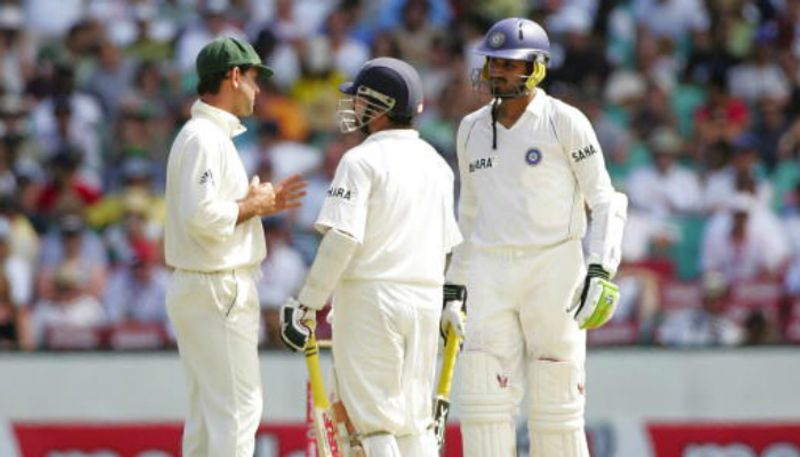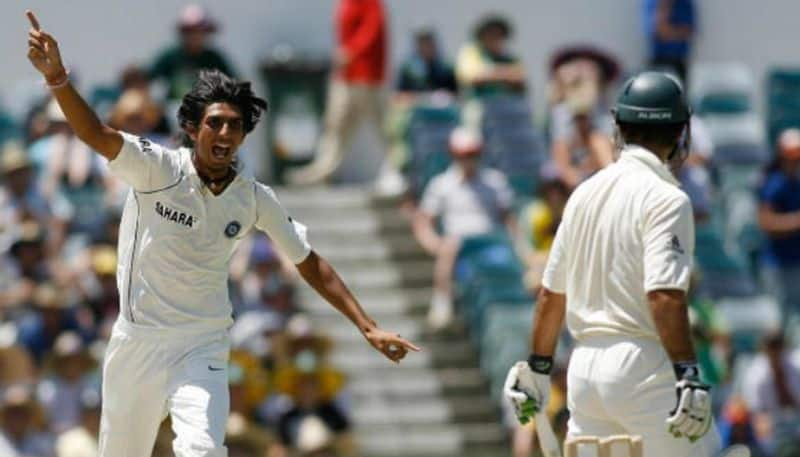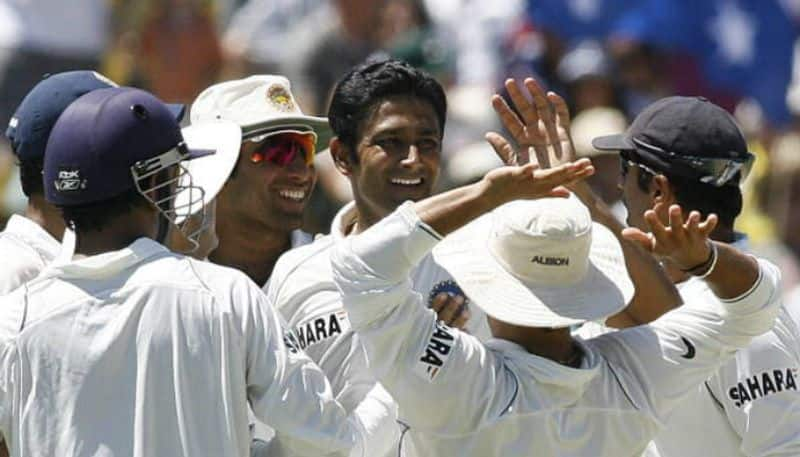Following all the drama in Sydney, Anil Kumble and Ricky Ponting scrapped the pre-series catching agreement. The captains had agreed before the series to take the word of the fielders on contentious catches. However, with what transpired on the field with the Australians, India were forced to discard it mid-way
From being pushovers, India have come a long way to be the real challengers to Australia in their own conditions in Test cricket. India-Australia rivalry has grown over the years with fans eagerly waiting to see the contests in the longest format. As Virat Kohli and his men chase history Down Under, MyNation brings to you the previous five tours by India to Australia and their highlights. Here is how the 2007-08 series panned out. To read about the other India vs Australia series Down Under, click here
Bengaluru: India's tour to Australia in 2007-2008 was an eventful. It was full of action, both on and off the field. It all unfolded during the second Test in Sydney in January 2008.
Captain Anil Kumble invoked Australian skipper Bill Woodful when he said, "Only one team was playing with the spirit of the game, that's all I can say."
The cricket world was reminded of Woodful's comments from the infamous 1932-33 bodyline series when he had remarked, "There are two teams out there. One is playing cricket and the other is not."
Also read: India-Australia series schedule, squads, live TV, streaming information
Australian captain Ricky Ponting, who claimed a catch after TV replays clearly showed that the ball had touched the grass, defended his team's actions.
"I have absolutely no doubt about this match being played in the right spirit. There's been one little issue that's come out of the game, otherwise the spirit between both teams in both Tests has been excellent," he said, disagreeing with Kumble.
The Sydney Test was marred by poor umpiring and Harbhajan Singh charged with racially abusing Andrew Symonds which resulted in the Monkeygate scandal.
After being accused of calling Symonds a "monkey" during the Test, Harbhajan was handed a three-match ban by the match referee Mike Procter.
India protested and threatened to pull out of the tour and they refused to travel to Canberra for a tour match before the third Test in Perth.
Talking about that episode, Sachin Tendulkar, in his autobiography, Playing It My Way, said the players were "serious" on boycotting the tour over allegations against Harbhajan.
"I must reiterate we were very serious about the boycott and we were fully prepared to accept the consequences of walking out on the tour, knowing that such an action might have resulted in the ICC banning the Indian team," he wrote.
Later, Harbhajan won an appeal and his ban was overturned with racism charges dropped. He was fined 50% of match fee.

This decision by the International Cricket Council (ICC) was slammed by the Australian media with one of the newspapers writing, "Cricket caves in to India’s demands."
Following all the drama in Sydney, Kumble and Ponting scrapped the pre-series catching agreement. The captains had agreed before the series to take the word of the fielders on contentious catches. However, with what transpired on the field with the Australians, India were forced to discard it mid-way.
The umpires in Sydney were West Indian Steve Bucknor, who had always been India's "villain". His on-field partner was Englishman Mark Benson.
Upset with Bucknor's poor umpiring, the Board of Control for Cricket in India (BCCI) demanded he be changed for the next Test and it was done by ICC.
In fact, Bucknor and Benson were replaced with Billy Bowden and Asad Rauf for third and fourth Tests.
Mauled in Melbourne
Talking about how the tour began, it was a forgettable one for India. It all started in Melbourne in the Boxing Day Test.
The first contest of the Border-Gavaskar Trophy saw the hosts thrashing India by a mammoth 337-run margin. In both innings, India failed to touch the 200-run mark.
In the entire match, there was only one half century for India, from Tendulkar.
Australia had a century from opener Matthew Hayden and he went on to win the Man-of-the-match honour.
In the second Test at Sydney Cricket Ground (SCG), India, amid all those controversies, could have saved the Test but crumbled in the final few minutes on the final day.
With just eight minutes remaining for the close of the contest, Australia claimed a stunning victory as part-time spinner Michael Clarke took three wickets in 1.5 overs. The final three wickets were claimed by him in the space of five balls. India, chasing 333, were close to drawing the game but lost 3/0 (Harbhajan, RP Singh and Ishant Sharma) with the score on 210.

Historic win in Perth
After all the drama in Sydney, India achieved a remarkable turnaround in Perth in the third Test.
A spirited Indian side, defeated Australia by 72 runs with Irfan Pathan winning the Man-of-the-match award as he took five wickets and made useful contributions with the bat.
It was a historic triumph for India in Perth as Australia were defeated at the venue by a visiting team for the first time since 1985-86 when the mighty West Indies had achieved.
The match is also remembered for young Ishant's superb nine-over spell of fast bowling against skipper Ponting. According to the bowler, it "changed" his life completely.
"It's a great feeling to get a great batsman like Ricky Ponting twice in the match. I didn't change my bowling much from what I do in domestic cricket but I can't remember a spell like this. It's the best I've bowled in my career. It's not because of Ponting but more to do with rhythm. We have a plan against all batsmen and just try and stick to it," Ishant had said after the win.
A year later, he had said, "I may never be able to bowl like that nine-over spell against Ponting. It happens to a cricketer just once in a life time, or may be twice. But I may never bowl like that ever in future. It has changed my life completely."

India return empty-handed, again
After Perth, the final contest was in Adelaide from January 24 to 28. It was a drawn game and the hosts bagged the trophy with 2-1 scoreline.
Both teams had score in excess of 500 in the first innings and India made 269/7 declared in the second essay as curtains came down the series marred by numerous controversies.
This was the tour which further enhanced the reputation of Kumble, who was known to play the game in a true gentleman way. He adhered to the spirit of the game and won millions of hearts. The way he led the team in the time of crisis was well appreciated by former players and fans.
This was also Kumble’s last series in Australia. The same year, 2008, he retired from international cricket during the home series against the same opposition.
India may not have won the trophy in 2008 but they did win a Test, that too in Perth, which was a great achievement after what they went through in the previous game in Sydney.
Last Updated Dec 5, 2018, 5:16 PM IST











![Salman Khan sets stage on fire for Anant Ambani, Radhika Merchant pre-wedding festivities [WATCH] ATG](https://static-ai.asianetnews.com/images/01hr1hh8y86gvb4kbqgnyhc0w0/whatsapp-image-2024-03-03-at-12-24-37-pm_100x60xt.jpg)
![Pregnant Deepika Padukone dances with Ranveer Singh at Anant Ambani, Radhika Merchant pre-wedding bash [WATCH] ATG](https://static-ai.asianetnews.com/images/01hr1ffyd3nzqzgm6ba0k87vr8/whatsapp-image-2024-03-03-at-11-45-35-am_100x60xt.jpg)



